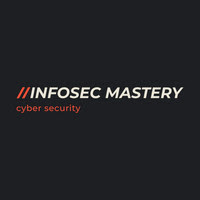Introduction:
Are you fascinated by the world of cybersecurity? Do you want to enhance your knowledge and skills in this rapidly evolving field? Look no further! In this blog post, I'm thrilled to introduce you to five outstanding and free online cybersecurity courses that are sure to take your understanding of cybersecurity to new heights. These courses not only offer invaluable knowledge and practical skills but also serve as stepping stones toward a rewarding career in cybersecurity. So, without further ado, let's dive right in!
1. "Introduction to Cybersecurity" by Cisco Networking Academy:
Website: https://www.netacad.com/courses/security/introduction-cybersecurity
Reference Book: "The Web Application Hacker's Handbook" by Dafydd Stuttard and Marcus Pinto
The "Introduction to Cybersecurity" course by Cisco Networking Academy is an ideal starting point for beginners. It covers fundamental concepts such as confidentiality, integrity, and availability, along with an introduction to network security and secure communications. The course emphasizes hands-on learning, offering practical lab exercises and real-world examples. For further reading, "The Web Application Hacker's Handbook" is a comprehensive guide to web application security that complements the course material.
2. "Cybersecurity for Business" by University of Colorado System:
Website: https://www.coursera.org/learn/cybersecurity-for-business
Reference Book: "The Phoenix Project: A Novel About IT, DevOps, and Helping Your Business Win" by Gene Kim, Kevin Behr, and George Spafford
Designed for professionals seeking to understand cybersecurity from a business perspective, "Cybersecurity for Business" is a free course offered by the University of Colorado System on Coursera. The course provides insights into the impact of cybersecurity on organizational success and equips learners with practical strategies for managing cybersecurity risks. "The Phoenix Project" is a captivating book that combines fiction with real-world scenarios, offering an engaging perspective on the importance of cybersecurity within the business context.
3. "Cybersecurity and Its Ten Domains" by IBM:
Website: https://www.edx.org/professional-certificate/cybersecurity-and-its-ten-domains
Reference Book: "The Art of Intrusion: The Real Stories Behind the Exploits of Hackers, Intruders, and Deceivers" by Kevin D. Mitnick and William L. Simon
Delivered by industry giant IBM, the "Cybersecurity and Its Ten Domains" course provides a comprehensive overview of cybersecurity principles and practices. It covers essential topics such as network security, access control, cryptography, and incident response. The course includes practical labs and exercises to reinforce the concepts learned. To gain further insights into the minds of hackers and understand the psychology behind their exploits, "The Art of Intrusion" is a captivating book that offers real-life stories and valuable lessons.
4. "Malware Analysis and Reverse Engineering" by Cybrary:
Website: https://www.cybrary.it/course/malware-analysis-reverse-engineering/
Reference Book: "Practical Malware Analysis: The Hands-On Guide to Dissecting Malicious Software" by Michael Sikorski and Andrew Honig
For those interested in exploring the intriguing world of malware analysis and reverse engineering, Cybrary's "Malware Analysis and Reverse Engineering" course is a gem. This course provides learners with hands-on experience in dissecting and understanding malicious software. Through practical exercises and case studies, participants learn about malware behavior, code analysis, and detection techniques. Complementing the course, "Practical Malware Analysis" is an excellent reference book that offers a comprehensive and practical approach to malware analysis.
5. "Ethical Hacking" by Stanford University
:
Website: https://online.stanford.edu/courses/soe-ces-0111-ethical-hacking
Reference Book: "The Basics of Hacking and Penetration Testing: Ethical Hacking and Penetration Testing Made Easy" by Patrick Engebretson
If you aspire to become an ethical hacker, Stanford University's "Ethical Hacking" course is an exceptional resource to get you started. This course covers the fundamentals of penetration testing, vulnerability assessment, and network reconnaissance. Learners gain hands-on experience using various tools and techniques in a safe and controlled environment. "The Basics of Hacking and Penetration Testing" is a valuable book that complements the course, offering practical insights and guidance for aspiring ethical hackers.
Conclusion:
Embarking on a journey into the world of cybersecurity has never been easier, thanks to the abundance of free online courses available. These five courses provide a solid foundation and practical skills in different aspects of cybersecurity, from introductory concepts to more specialized fields like malware analysis and ethical hacking. By supplementing your learning with the recommended books, you'll gain additional insights and broaden your understanding of the subject matter. So, why wait? Dive into these courses today and embark on an exciting path toward a rewarding career in cybersecurity!







0 Comments